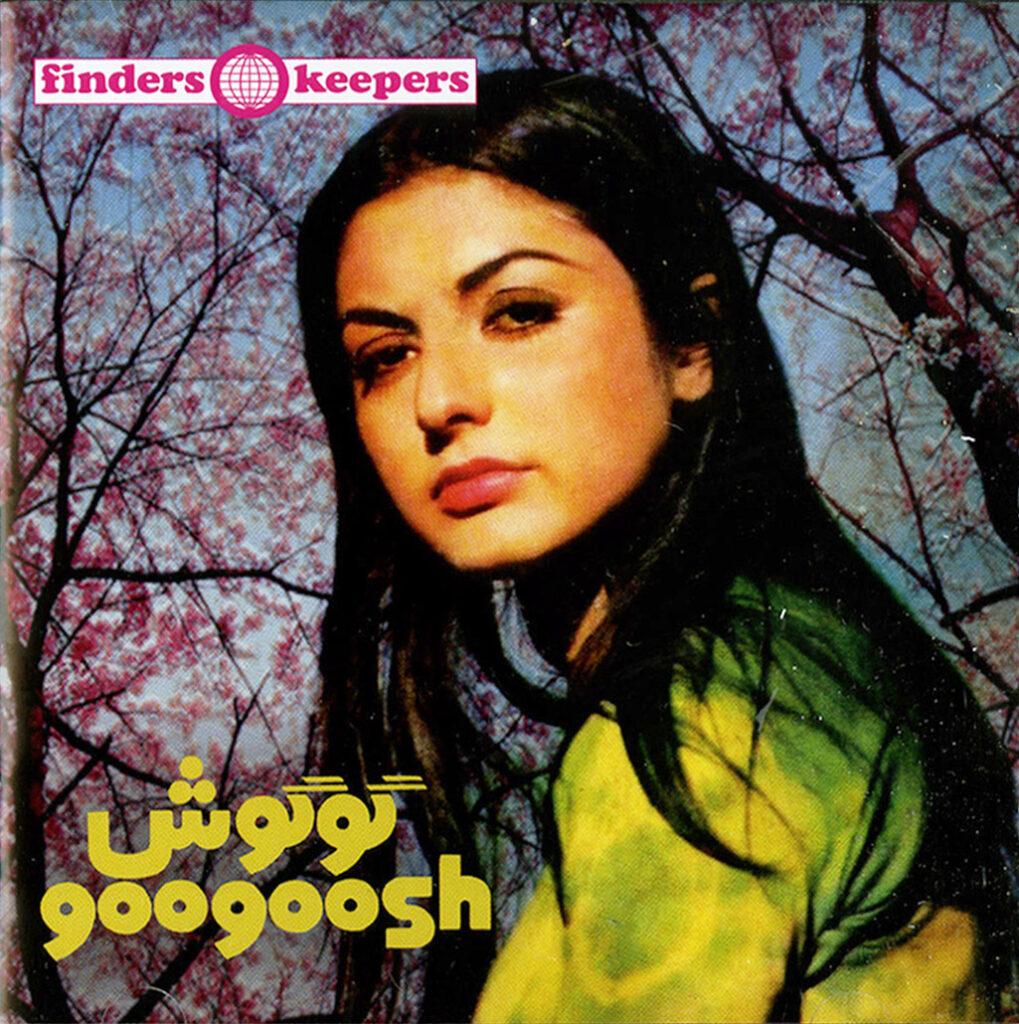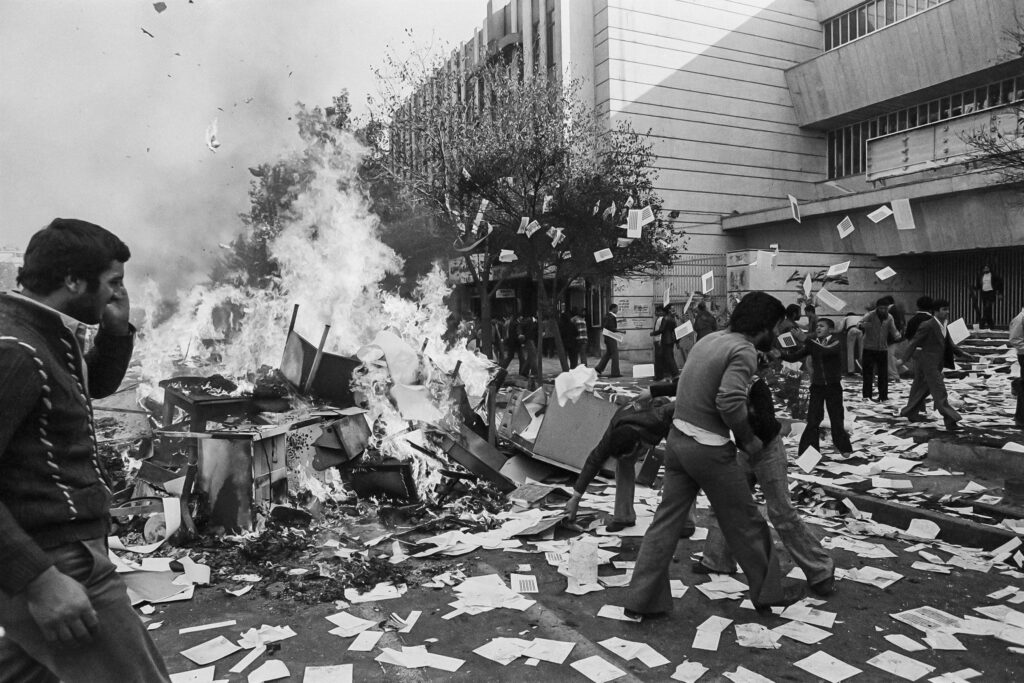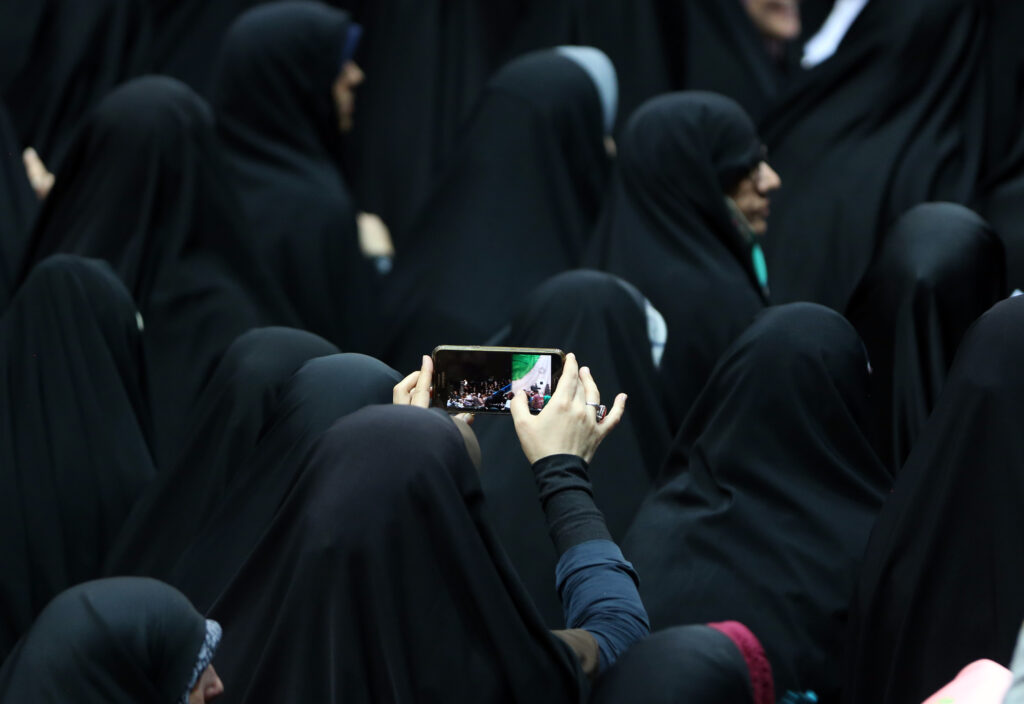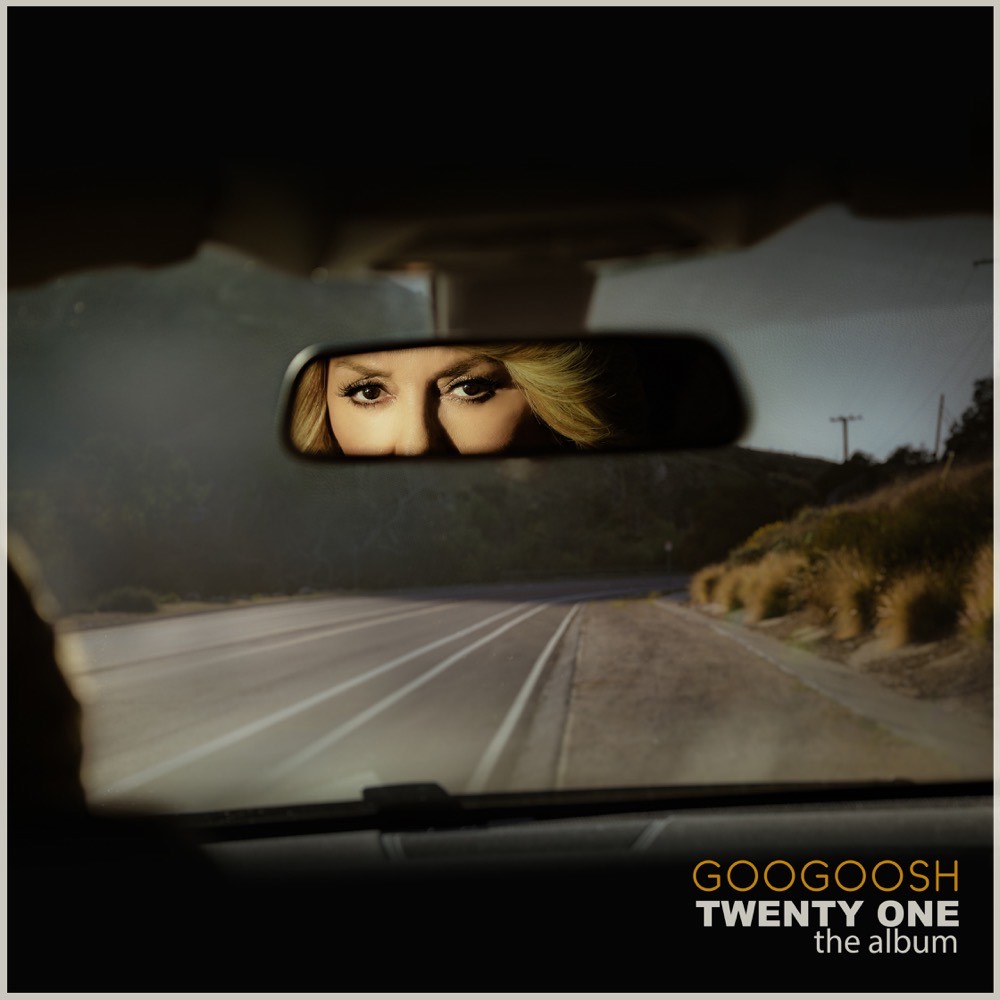On a Tuesday afternoon, during the lunchtime rush at Los Angeles’ über-trendy Highly Likely Café, the strains of Iranian singer Googoosh’s song “Talagh” come through the speakers. The song, whose title means “divorce,” is sung in Farsi. It slips in between modern-day songs that would be found on NPR’s New Music Friday playlist and the city’s tastemaker station KCRW’s hand-picked selections. Its saucy rhythms and hard-hitting dance beats fit in seamlessly. Googoosh’s singularly rich voice surges over the café’s patrons.
“Talagh” doesn’t stand out to this lunch crowd, partially because it blends so well into the playlist. I glance around to see if there’s any reaction to the song, and then I interrupt my lunch companion to bring her attention to its infectious grooves.
The reason why “Talagh” catches my ear is because it was released in Iran in 1975, when Googoosh, the country’s figurehead entertainer, was at the peak of her career—four years before the Islamic Revolution. At that time, my family was temporarily living in Tehran, Iran. I was born in the United States to Iranian parents. We moved every few years due to my father’s profession. In between his assignments, we would go back to Iran for two-year stretches.

Googoosh, born Faegheh Atashin in Tehran in 1950, started her career at three years old, performing alongside her father, an acrobat and an entertainer. She began acting in films by the age of nine. Through the 1960s and 1970s, she starred in 25 films and became a beloved figure of the Iranian people. She came into her own as a singer, which elevated her even further. Googoosh was the epitome of the Iranian woman. She was beautiful, gracious, stylish, multi-talented and nice. When she married Iran’s biggest male movie star, Behrouz Vossoughi, the level of frenzy over their pairing eclipsed that of any Hollywood power couple. They were the true royalty of Iran, the people’s choice.
At the Highly Likely Café, it dawns on me that no one recognizes “Talagh” as an Iranian song, or that the woman singing it was, for two decades, oppressed by the Islamic Republic of Iran.
This is the same government whose brutality is currently splashed across the media worldwide for killing a young woman, 22-year-old Mahsa Amini, at the hands of the morality police for her loose hijab, her head covering. Amini died on September 16, 2022, three days after her arrest.
Since Amini’s death, Iranians have been protesting, both in Iran and abroad, against the repressive regime. These have become riotous, with women illegally burning their forced hijabs. The protests in Iran have been met with more brutality and, to date, 75 deaths and counting, according to CBS News. The dictatorial government has done its best to shut down internet service, to restrict the outside world from seeing its atrocities.
I was nine years old when the Islamic Revolution erupted. I watched the Revolution turn my world upside down from the balcony of my bedroom. Rioters destroyed business and yelled for the death of the Shah and the rise of the leader of the Islamic Revolution, Ayatollah Khomeini. My parents tried to shield me, pulling me away from the carnage and explaining that it would all be over soon.
Not long after the Islamic regime had established itself, I felt a squashing I imagine was a bit like what Googoosh went through. Even though I was a child with a still-androgynous body, the harassment I experienced running to the corner store for an ice cream was aggressive. Grown men would stare and make suggestive comments, loudly. They would follow me, getting closer and closer, sometimes managing to grab at my body. I started wearing longer and longer shirts that covered my butt, with sleeves that came over my wrists in order to camouflage myself from judgmental eyes. My parents suggested I keep a scarf tied around my shoulder, in case, based on the strict Islamic laws, I needed to pull it over my head in a pinch, in order to be considered appropriately hijab-ed.

Stealthily, the Islamic Republic was making me disappear – much like they did with Googoosh, except for her, it was overtly. My family was neither trapped, nor trying to escape Iran. My parents chose to stay, planning on making our smooth departure from Iran to the U.S. when I was entering college. That was not the situation for most Iranians. It certainly wasn’t the option for Googoosh.
“Everything stopped for me. Everything changed. I felt lost. That 21 years, I forgot who I am because they wanted me to be nobody,” Googoosh told the Los Angeles Times in 2018.
Googoosh was ubiquitous during the two pre-Islamic Revolution years I lived in Iran. She, and many other Iranian singers, filled the interstitial spaces between television programs. She would appear with a fresh hairdo and a different drop-dead outfit, performing a brand new banger, seemingly every week. Her aesthetic was copied by all Iranian women, who cut their hair like her. Years before “The Rachel,” we had “Googoosh-y.” Iranian women attempted to recreate her outfits. But by the time they caught up, Googoosh was onto the next thing. Not unlike Madonna, but ages before Madge showed up on the scene, and at a much faster rate of evolution. YouTube offers many grainy examples of her ever-changing styles.
A favorite of the former Shah of Iran, Googoosh regularly performed for him. The fundamentalist Islamic Revolution that overthrew the Shah and his government executed numerous individuals surrounding the monarch. As a frequent presence in the Shah’s court, it would not have been surprising if the Islamic Revolutionaries had executed Googoosh, but they didn’t. Instead, they banned all women from performing in public, and silenced her in particular.
The Islamic Revolution destroyed all record stores, in the process making physical recordings of Googoosh instant rarities, a marked pain point in the pre-internet era. But her music is perennial—and not just for the Iranian diaspora. She mixes Western rock, funk and disco sounds with traditional Iranian pop, bringing those elements together with stellar musicians and crisp, hard-hitting production. This combination is what is proving to stand the test of time.
Her songs have been sampled, remixed, covered and emulated by numerous Western artists. The aforementioned “Talagh” was heavily sampled by Kanye West on “Feedback” from 2016’s The Life of Pablo. The electronic act Cirrus sampled it on their 1998 song “Time’s Running Out.” In 1988, dance music pioneers 808 State did an edit of a version of “Talagh,” strangely named “Ham Safar,” which is a different Googoosh song. Khruangbin contributed an instrumental cover of her song “Ma Be Ham Nemiresim” to the 2017 compilation, Philia: Artists Rise Against Islamophobia.

“She’s amazing,” Khruangbin’s Mark Speer told me, speaking of Googoosh in 2020 when I interviewed him for the band’s third album, Mordechai. “I’m a huge fanboy. I can’t get enough. She’s so inspiring. One of the things I love about this specific era of Iranian pop music is it almost sounds like the drummer and the bass player play metal on weekends. You’ve got these gorgeous strings and flute and the gentle acoustic strum. You have Googoosh soaring over it. The bass is tough. The drums are hard. But there’s this beautiful, draping, heartbreaking melody.”
This quality is what Speer was looking for on the instrumental “Shida,” Mordechai’s heavily Iranian music-influenced album closer. Speer said, “’Shida’ was the hardest song to record. We tried to record it every single day because we were trying to find that balance of the rhythm between the bass and the drums. It has to be really tight. And I’m trying to make my guitar part sing like Googoosh on that track. That was my goal.”
Rob Garza of Thievery Corporation, who have included Farsi-language songs on their albums starting 20 years ago, tells me that before the internet, finding and listening to vinyl was the way the duo learned about other cultures.
“We were listening to a lot of different music,” says Garza. “It was our form of communication across geography and time, letting you know other kindred spirits exist out there beyond your own microcosm. We listened to ‘Talagh’ a bunch in the studio. Beautiful Iranian strings on top of this slinky disco groove and cool, haunting vocals.”
Anthony Valadez, the co-host of KCRW’s influential program “Morning Becomes Eclectic,” plays present day Farsi-language songs, almost on a daily basis. Valadez says he discovered Googoosh while digging in record store crates. He liked the artwork and took it to the store’s listening station. He felt himself gravitating toward her voice.
“I didn’t know what she was saying, but it just spoke to me.” he says. At the time, Valadez had a midnight to 3:00 a.m. slot at KCRW. He played the record and the feedback was instantaneous and vociferous. “The minute I played it, folks were blowing me up on socials. I didn’t realize the impact of her music until I played it.”

Googoosh made it out of Iran in 2000. Now, at 72, the ageless icon continues to play concerts across the globe, including a sold-out night at the Hollywood Bowl in 2018—where Khruangbin’s Laura Lee Ochoa told me she was in attendance. Googoosh’s original fans remain loyal and new fans—of all ethnic backgrounds—discover her all the time.
After 21 years of essentially being held prisoner in her own country, Googoosh made it out. She is reported to have a home in Los Angeles. This is not an option for the majority of women in Iran. They, like Googoosh, have a myriad of talents, from the creative to the scientific. They are bright and bold and have learned the art of subtle matriarchy through generations of mothers and mother figures. They are outspoken and articulate. The oppression of the Iranian government gives them impetus to push back. The killing of Mahsa Amini is utterly horrifying, but it has given the people of Iran the strength and courage to revolt against the oppressive government, of which they have had enough of for many years. Contrary to what non-Iranians may assume, Iranian people are not necessarily looking to leave their country. They want great change within their country.
Because, as Googoosh told NPR in 2021, “I love my country.” And for Iranians around the world, Googoosh means home.

Leave a comment